AnonymousTurtle
Posts 5
Comments118
Amazing talk!
Is it the same as last year's The Vegan Blindspot talk? Or were there any updates besides removing mentions of "vegans" to appeal to a more general audience?
I can't find the original anymore but it seems very similar to what I remember.
Curious about your theory of change. Is the idea to fundraise for Wild Animal Initiative, to encourage people to work on wild animal suffering, or something else?
As I mentioned here, I think people really shouldn't treat EAG acceptance as a measure of moral worth. Plenty of people with no EA achievements got accepted and some people with impressive achievements got rejected.
I would really interpret it as "how much does a CEA staff member reviewing 1000 applications believe that going to EAG would help me or others do more good, based on my answers to three short questions"
I would really recommend against spending a lot of time filling in the application. For that to be valuable you would need to believe all the below:
- You attending EAG will lead to a lot of good happening, even after considering that:
- All the main talks are recorded
- People who would accept a 1-1 meeting with you would also reply to an email or message from you
- Many people were rejected from EAG and later found no issues working on very impactful projects
- There are EAGx and EAGVirtual events which offer similar opportunities, and several EAG conferences every year.
- CEA staff will not be able to notice 1. if you spend a short time answering those three questions
- CEA staff will be able to notice 1. if you spend a lot of time answering those three questions
If I was CEA staff, I wouldn't want to miss out on someone that would cause a lot of good by attending, just because they didn't spend a ton of time goodharting the application form. I'll let CEA staff confirm or deny this, but I think they even reach out to applicants asking for more information if they can't make a decision based on the contents of the application.
I don't think spending three or more hours on an EAG application is a good use of time, I'm honestly shocked to hear that anyone spent more than an hour on it. It's three short questions.
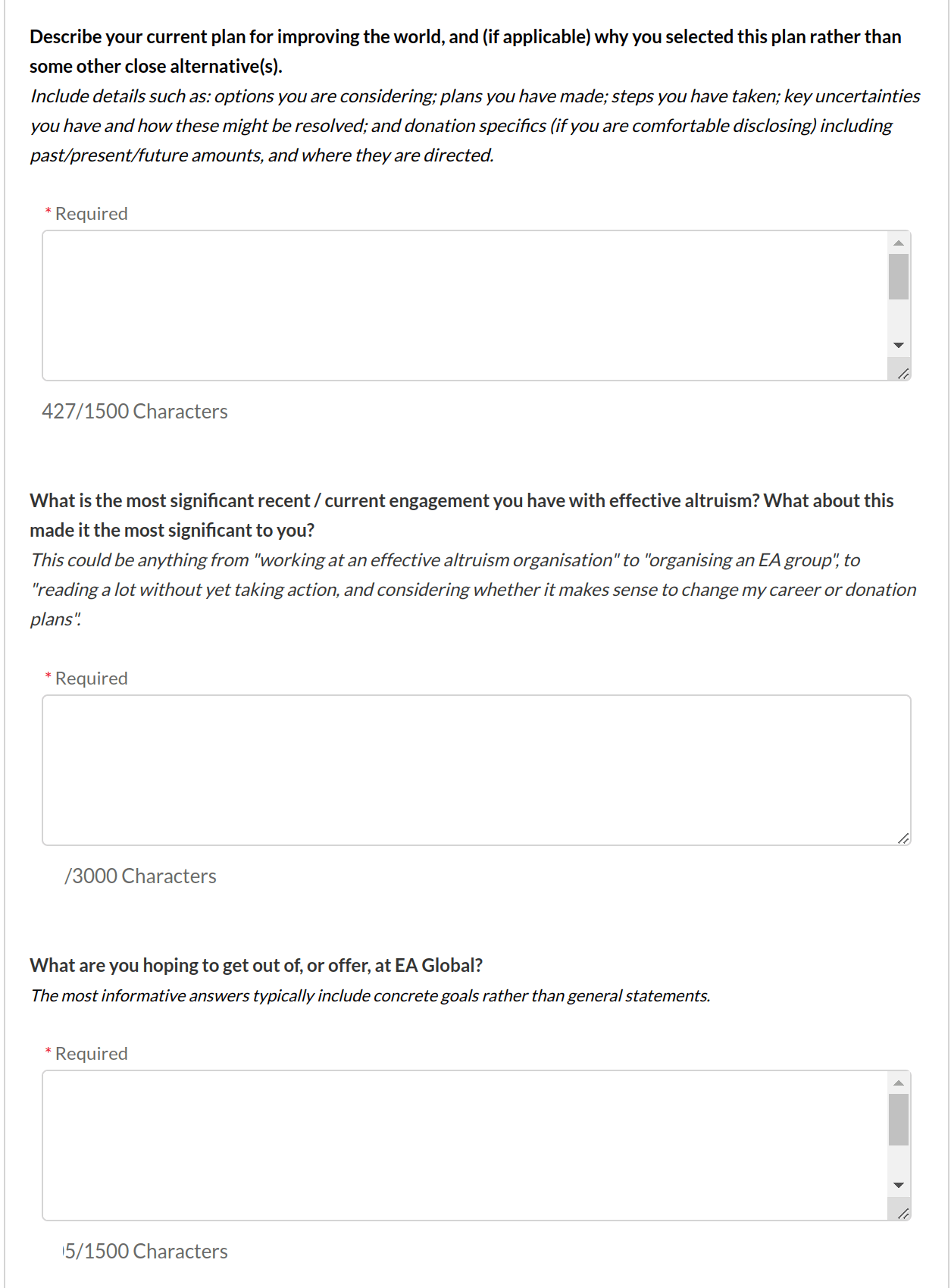
If going to EAG would help you do so much more good that it's worth working >=3 hours on an application, I would guess you can just write the reason why it's so valuable and you'll likely be accepted.
the plant-based meat industry has declined in large part because consumers' disposable incomes declined (at least in developed countries)
Do you have a source for this? Median real disposable income is growing in the US, as is meat consumption. https://www.vox.com/future-perfect/386374/grocery-store-meat-purchasing people are buying more and more meat as they get richer, even in developed countries
they have other things to do with their workday than write a correction to a comment on the Forum or LessWrong, get it checked by their org’s communications staff, and then follow whatever discussion comes from it.
I think anonymous accounts can help a bit with this. I would encourage people to make an anonymous account if they feel like it would help them quickly share useful information and not have to follow the discussion (while keeping in mind that no account is truly anonymous, and it's likely that committed people can easily deanonymize it)
I think the problem is that I just don't have a grand vision of the future I am trying to contribute to.
For what it's worth, I'm skeptical of approaches that try to design the perfect future from first principles and make it happen. I'm much more optimistic about marginal improvements that try to mitigate specific problems (e.g. eradicating smallpox didn't cure all illness.)
How much we can help doesn't depend on how awful or how great the world is, we can save the drowning child whether there's a billion more that are drowning or a billion more that are thriving. To the drowning child the drowning is just as real, as is our opportunity to help.
If you feel emotionally down and unable to complete projects, I would encourage to try things that work on priors (therapy, exercise, diet, sleep, making sure you have healthy relationships) instead of "EA specific" things.
There are plenty of lives we can help no matter who won the US election and whether factory farming keeps getting worse, their lives are worth it to them, no matter what the future will be.
I haven't read the whole report and I don't know anything about development economics, so I might be misinterpreting it, but I was really surprised by:
If I read this table correctly, GiveWell estimates there's only a 50% chance that they'll make a >=40% adjustment to GiveDirectly's main program estimated cost-effectiveness, right after making a 330% adjustment and with many uncertainties still unresolved
Looking at this table and this graph, it seems that GiveDirectly's program has had increasing marginal cost-effectiveness, instead of diminishing returns, by expanding to Malawi, Rwanda and Mozambique. This is another update against https://www.givedirectly.org/dont-wait/
- The 46% reduction in all-cause under 5 mortality seems absurdly high, even the 23% that GiveWell uses after discounting it is way higher than I would have ever thought, and has extremely depressing implications.

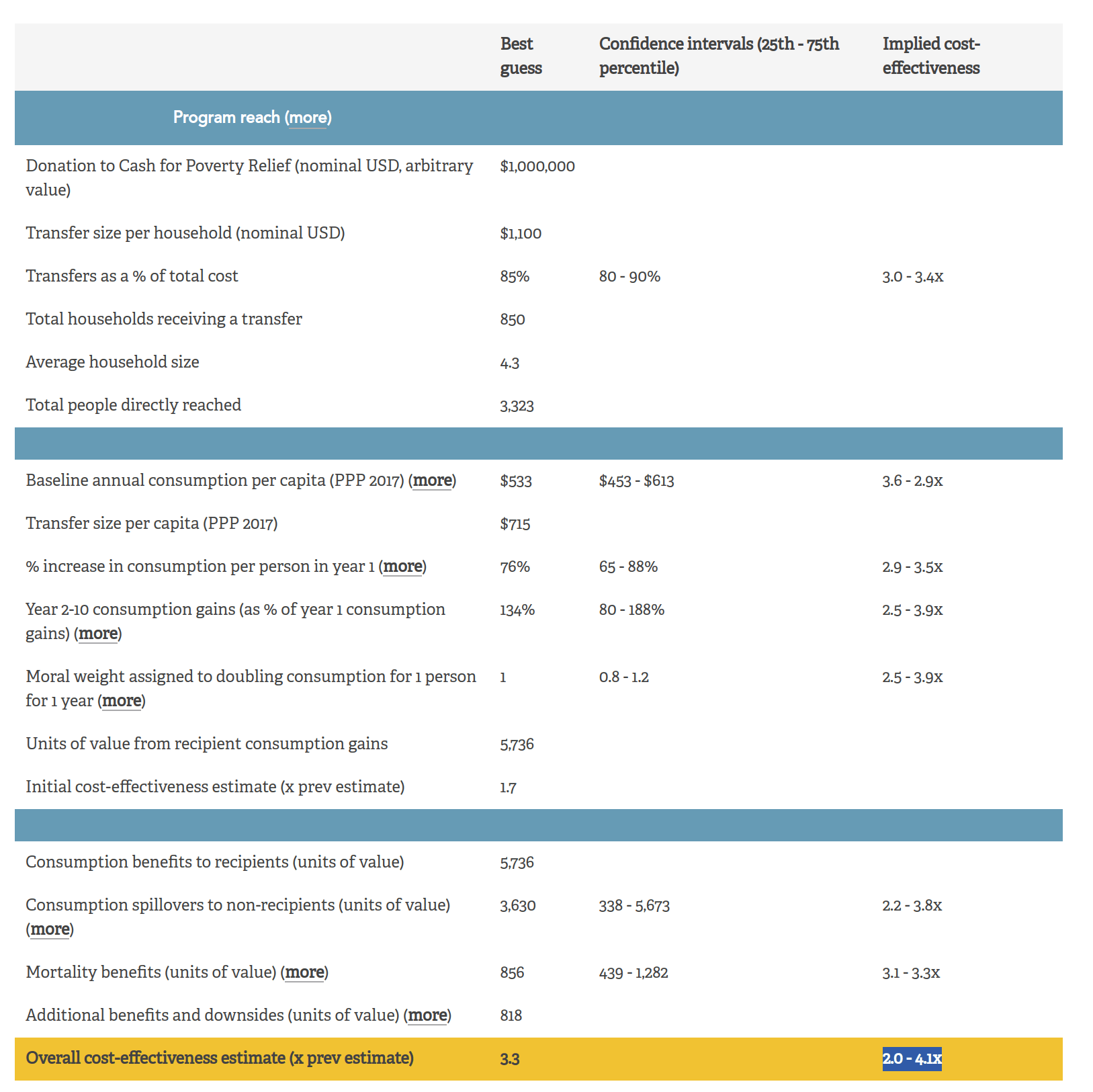
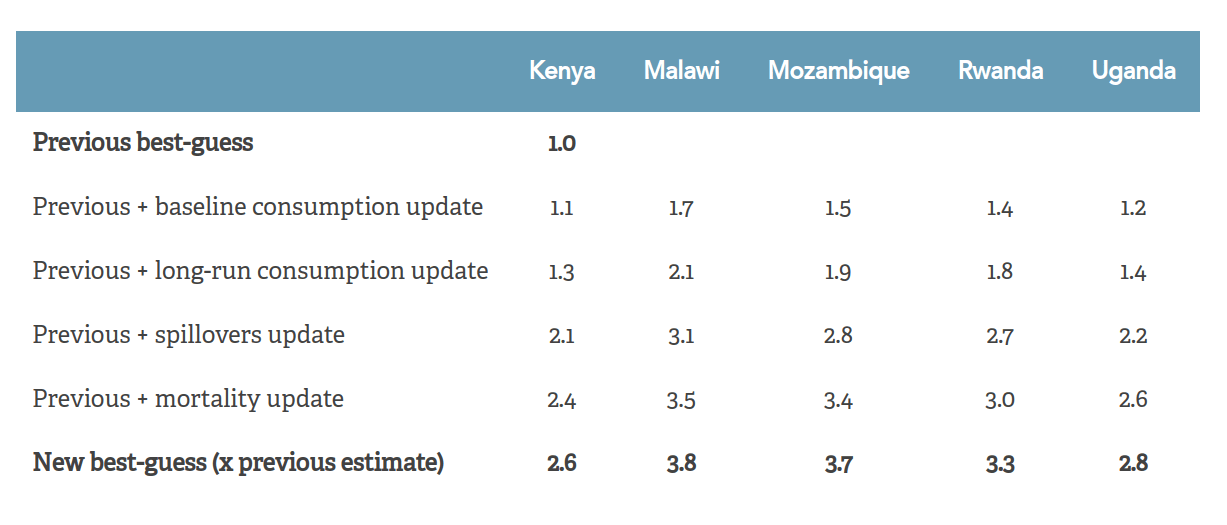
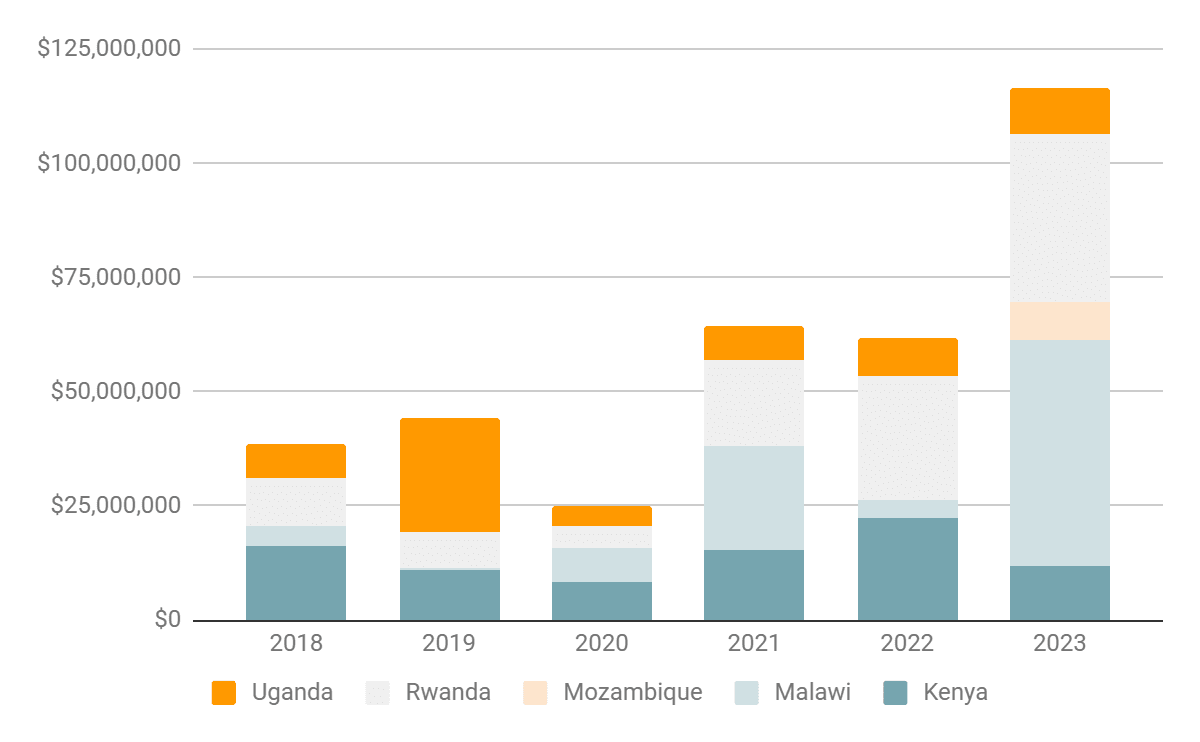
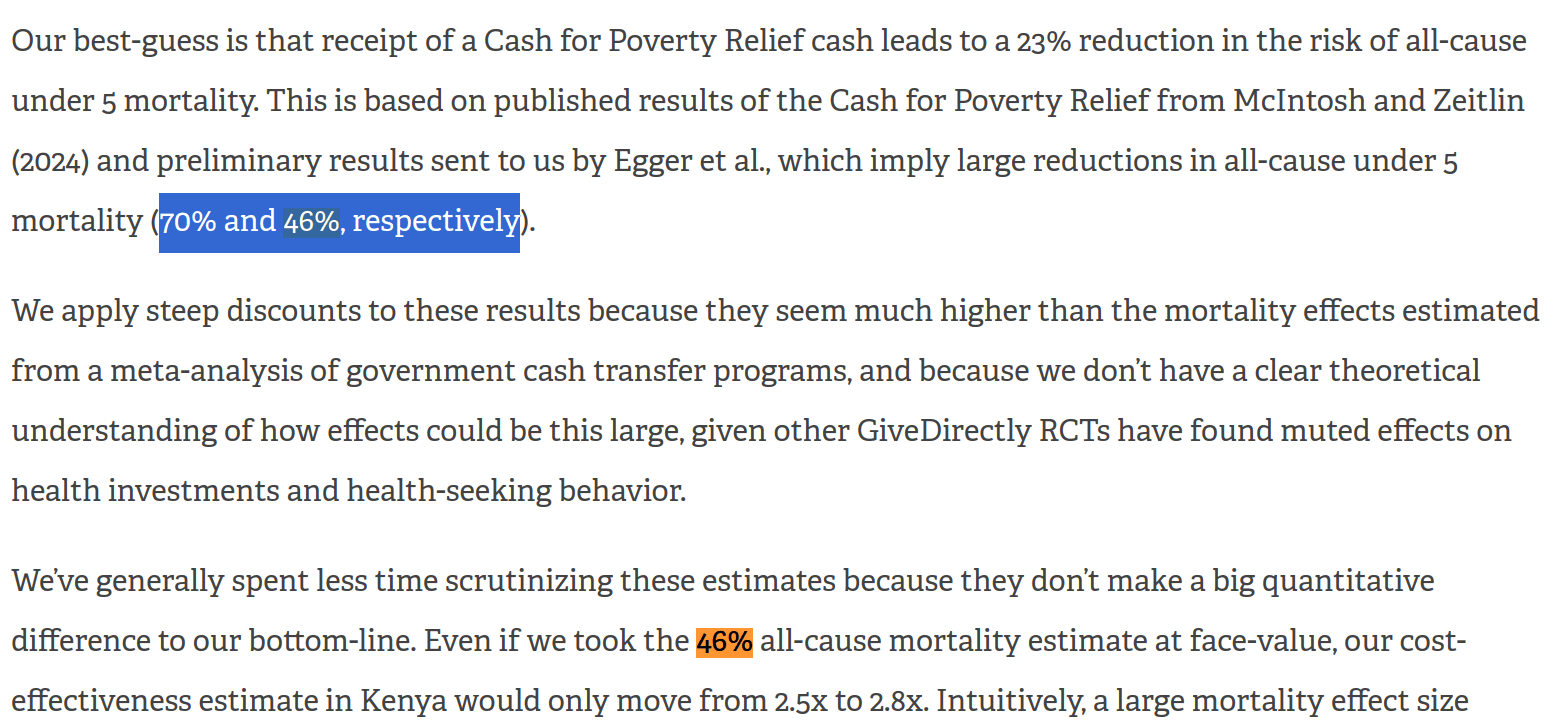
Could you expand on why that's the case? Is the idea that you believe those projects are net negative, or that you would rather marginal donations go to animal welfare and the long term future instead of EA infrastructure?
I think it's a bit weird for donors who want to donate to EA infrastructure projects to see that initiatives like EA Poland are funding constrained while the EA Infrastructure fund isn't, and extra donations to the EAIF will likely counterfactually go to other cause areas.